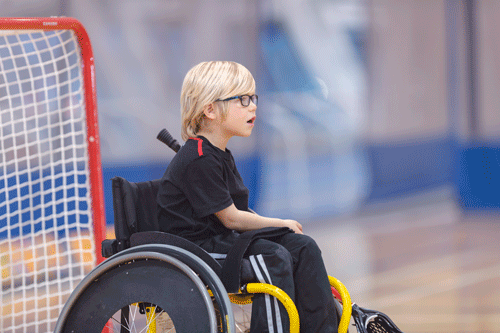Physical Education in Schools
Physical Education State Standards

The standards state that physical education in the WV school system should promote the development of motor skills and movements to allow for children to participate in physical activity and fitness. Through participating in physical activity and fitness, children will learn how to incorporate physical activity in their daily lives. The aim is also to promote wellness and disease prevention by demonstrating and having children complete physical activity.
If your child has a disability and an IEP, physical education and accommodations should be included as part of your child’s special education program.
Individualized Physical Education
An individualized physical education program (IPEP) is a plan designed to promote fitness practices and lifestyle changes and to encourage an individual to develop a lifetime commitment to physical activity and healthy living. National requirements (see box below) note that all students, including those with varying abilities, should receive physical education services, specially designed if necessary. Students who have a disability and IEPs should also have language in that document focused on physical education. Many students can safely participate in general physical education, with or without accommodations and supports. As you navigate adding or ensuring the IEP has a physical education component within it, note that the IEP should include a summary of present level of performance in physical education content, the frequency and duration (minutes and days per week or stipulated time) of physical education services, goals, and objectives about the content at minimum.
Physical Education Content and Requirements in IDEA
34 C.F.R.300.39(b)(2) IDEA defines "physical education" as the development of:
- Physical and motor skills
- Fundamental motor skills and patterns
- Skills in aquatics, dance, and individual and group games and sports (including intramural and lifetime sports)
- Includes special physical education, adapted physical education, movement education, and motor development
20 U.S.C. 1401(29) Special Education. The term 'special education' means specially designed instruction, at no cost to parents, to meet the unique needs of a child with a disability, including -
- instruction conducted in the classroom, in the home, in hospitals and institutions, and in other settings; and
- instruction in physical education.
34 CFR 300.108 Physical Education. The State must ensure that public agencies in the State comply with the following:
- General. Physical education services, specially designed if necessary, must be made available to every child with a disability receiving FAPE, unless the public agency enrolls children without disabilities and does not provide physical education to children without disabilities in the same grades. [See Commentary to IDEA below for more information on this often confused "grade level" misconception.]
- Regular physical education. Each child with a disability must be afforded the opportunity to participate in the regular physical education program available to nondisabled children unless -
- The child is enrolled full time in a separate facility; or
- The child needs specially designed physical education, as prescribed in the child's IEP.
- Special physical education. If specially designed physical education is prescribed in a child's IEP, the public agency responsible for the education of that child must provide the services directly or make arrangements for those services to be provided through other public or private programs.
- Education in separate facilities. The public agency responsible for the education of a child with a disability who is enrolled in a separate facility must ensure that the child receives appropriate physical education services in compliance with this section.
Resources:
- Adapted Physical Education National Standards (APENS) - Provides resources, standards and certification for adapted physical education
- Adapted PE Specialists - Adaptive Physical Education (APE) is a service that can be provided to a child with a disability and could be incorporated into the IPEP to meet national requirements for physical education. APE is adapted, or modified, physical education tailored to meet a student’s gross and fine motor needs and abilities. Physical educators who are trained in adaptive physical education are able to teach and motivate student from pre-K through adulthood best practices for physical activity, movement, and wellness. Integrated technology and assistive technology can be used to complete adapted physical activity and education lessons on a consistent basis.
- Coaching Athletes with Hidden Disabilities - Coaches, check out this document to learn the basic characteristics of hidden disabilities, keys for successful inclusion of athletes with hidden disabilities, and also tips for communicating with parents.
- IPEP - sample adapted physical education lesson plans and supports for lessons
- Physical Education for Students with Disabilities - This site provides legal resources and articles for guidance on including physical education in the IEP.
- The Education of Physical Education - This site provides tips for parents, schools, caregivers about integrating PE for children with autism
West Virginia Resources
Friday Adapted Physical Education Program
Friday Program is an adapted physical education program held on Fridays for 10 weeks on the WVU campus. The program allows children to engage in developmentally appropriate physical activity in a gym or aquatic setting. For more information, contact Andrea Taliaferro at Andrea.Taliaferro@mail.wvu.edu.

